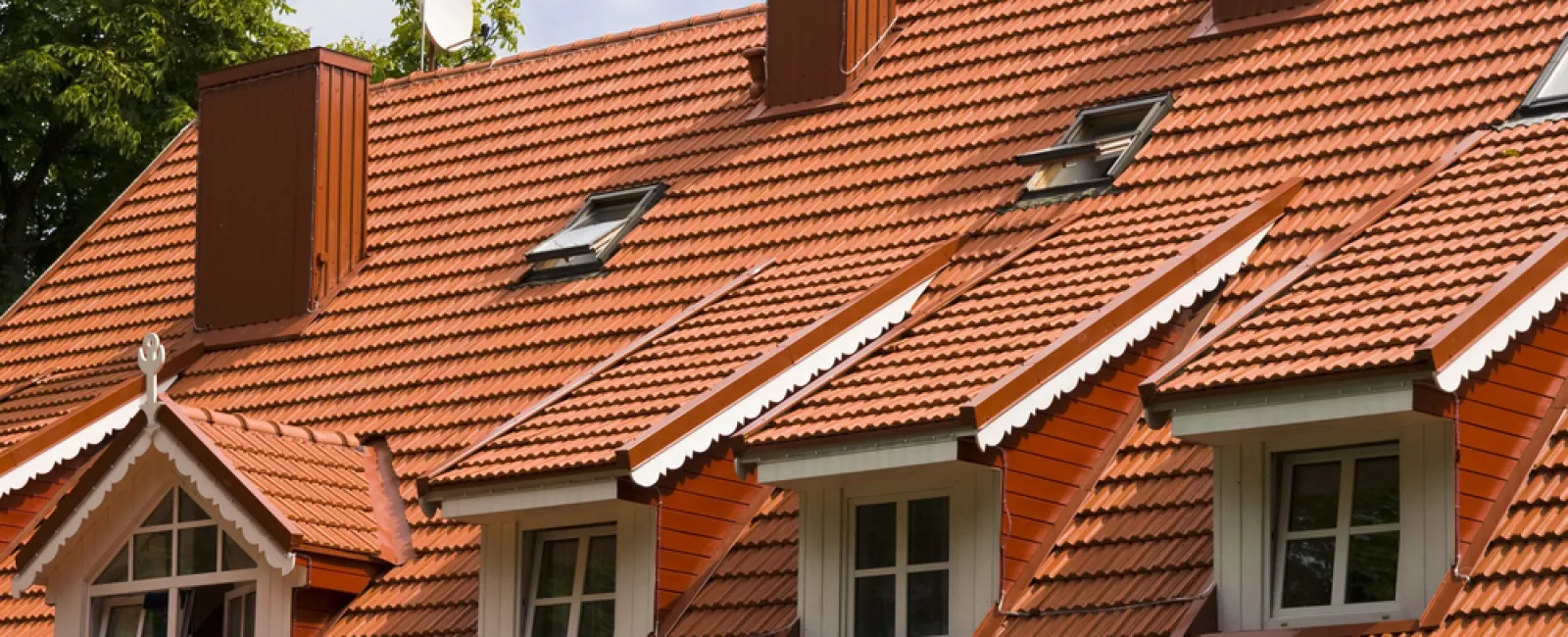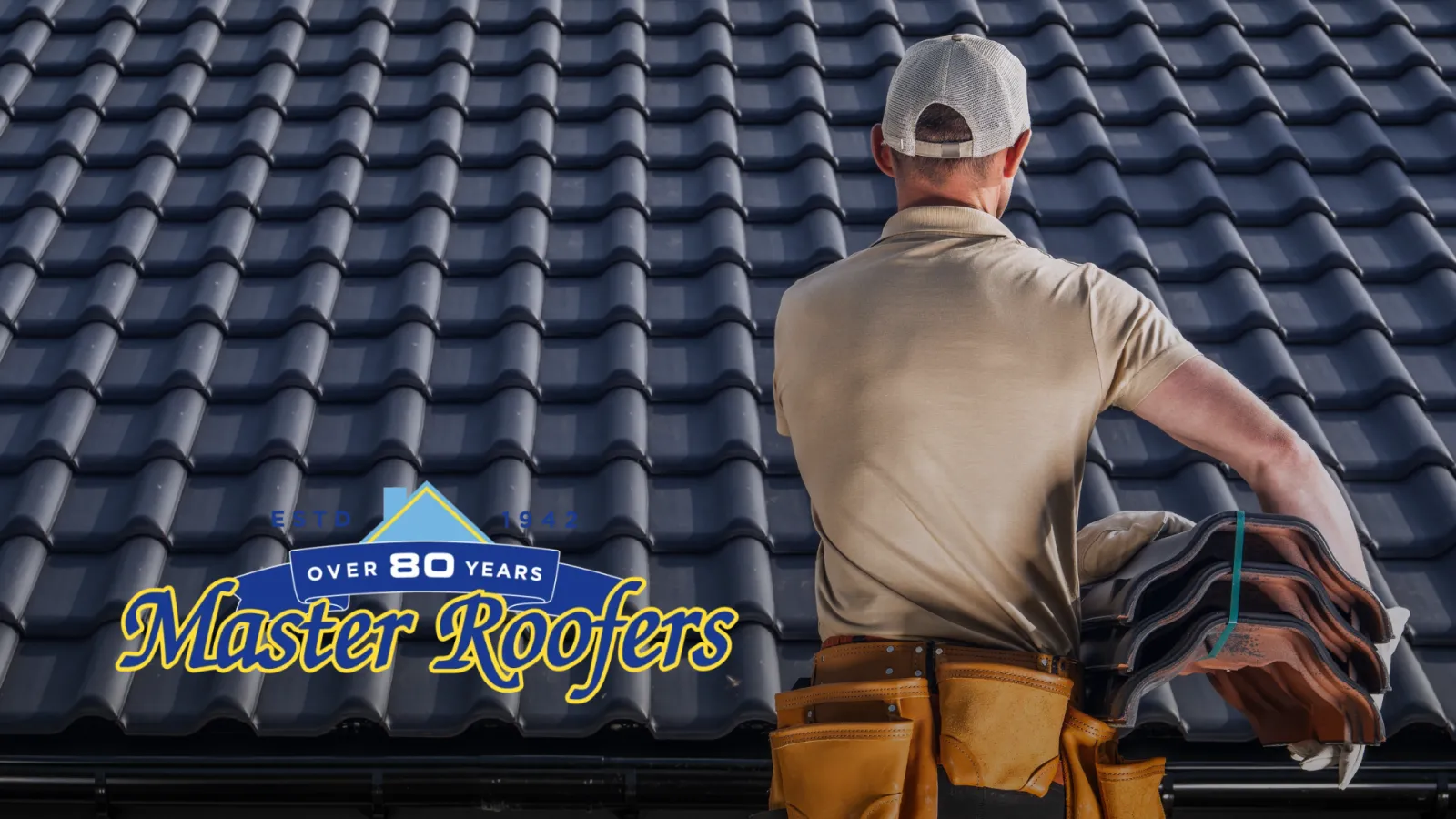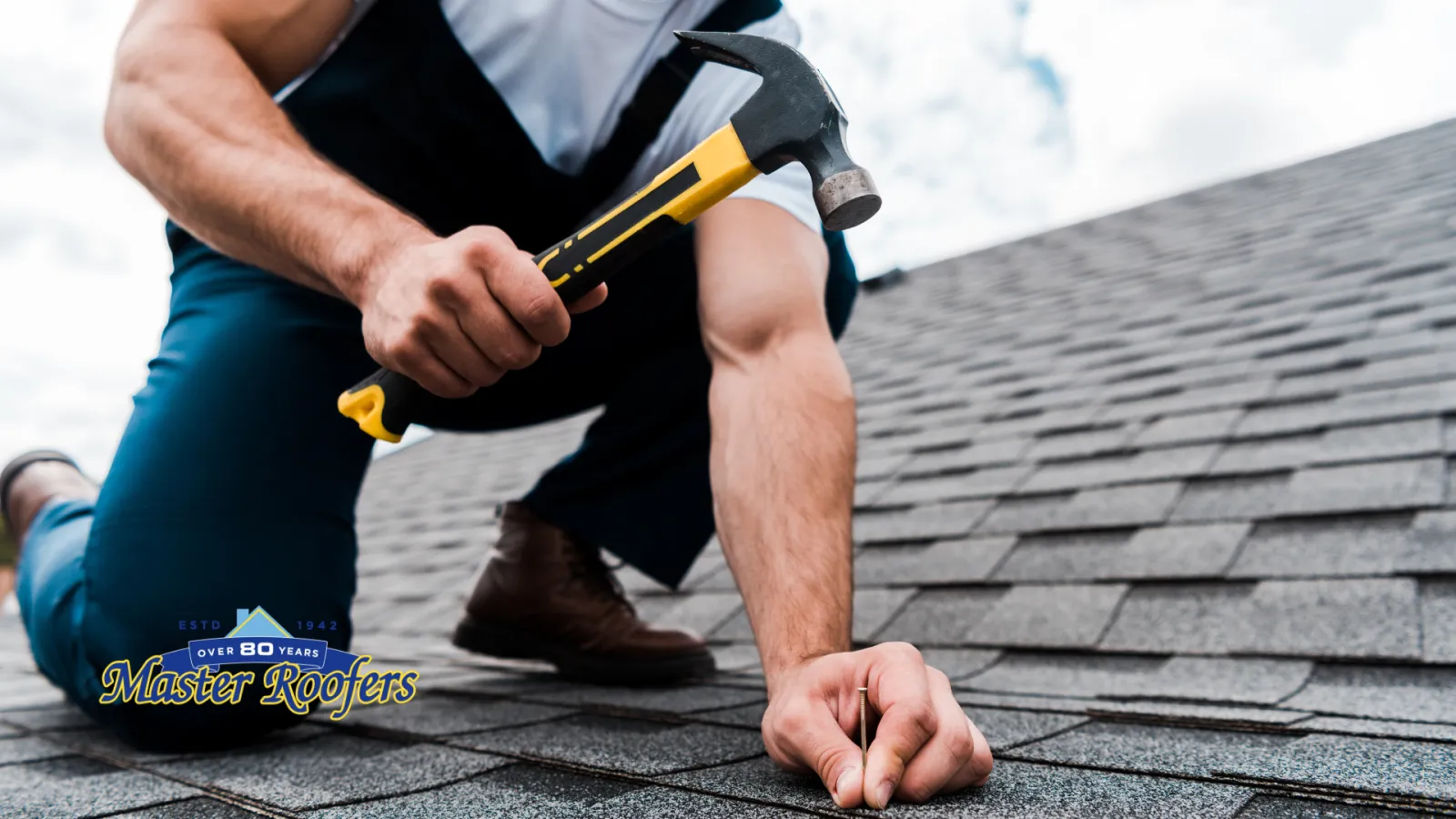In this episode, John Maher talks with Brett Rogenski, general
manager of Master Roofers, about the various factors that impact the cost of a
new roof. Brett explains how roof size, materials, and complexity contribute to
pricing, and the importance of choosing a reputable, experienced contractor.
They discuss the difference between materials like asphalt shingles and
standing seam metal, and how proper cleanup, waste removal, and labor costs
affect the total investment. Brett also offers advice on comparing quotes and
selecting the right roofing company, focusing on experience, certifications,
and service quality.
John Maher: Hi, I am John Maher. I'm here today with Brett Rogenski,
General Manager of Master Roofers, the most trusted roofing company in New Hampshire
for over 80 years. Today we're talking about the cost of a roof.
Welcome, Brett.
Brett Rogenski: Hey John. Thank you very much for having me.
What are the Primary Factors
that Determine the Cost of a New Roof?
Maher: Sure.
So, Brett, what are the primary factors that determine the
cost of a new roof?
Rogenski: Sure. Well, there's a lot of different factors. I would
tell you probably the two primary factors that affect it are, number one, its
size. So that's always a factor. Bigger roofs require more material and labor
than smaller roofs, typically, 95% of the time.
And then second of all, I would tell you the product that
someone's choosing, meaning the difference between asphalt shingles and say
standing seam metal or between asphalt shingle three-tab which are not used a
ton anymore and architectural shingles. So, a little bit on what product you're
choosing to put on. Is it shingles? Is it metal? And then second of all, what's
the size of that roof?
And then I guess third of all is I would tell you there's
something to be said for the company that's providing it. A company in good
standing is going to have certain costs, more so than Joe who just bought a
$500 used pickup and declared himself a roofer. But you'll also have a very
different experience, receive different warranties, all that different, all
those other things. So yeah.
Does the Complexity of the
Roof Impact the Price?
Maher: What about the kind of the complexity of the roof? Do you just
have a rectangular house with a front part of the roof and a back part of the
roof? Or do you have one of those old kind of New England farmhouses that's
like L shaped, it had an addition put on it at some point, so it's got another
section of the house that was added on later, and maybe you've got seven
dormers with windows on the second floor. Does that affect the cost as well?
Rogenski: Absolutely. You're 100% correct, John, is that the
complexity of the roof is different. A home that's a very simple two-story,
center-entry colonial with nothing too exciting going on, the roof is pretty
much a couple of rectangles, that is going to be simpler to execute than to
your point, an older home or a home with a bunch of dormers, a bunch of angles,
ridge lines. And it's not just ... There's a labor component to that, number
one. So the simple roof goes faster, it's able to be done more rapidly. But
also there's a materials portion of that.
So, when you think about a home with a bunch of dormers,
like you say, an angle in it, a bunch of different lines in that, it's going to
require more, for instance, valleys, which means cutting shingles, which means
ice and water dam in the valley or metal or however it's being addressed. So,
there's actually a product side of that too. So number one, it goes slower.
Number two, it's a more complex installation. And number three, there's
probably going to be more material and also material waste in that home just
because of all those different angles and valleys and shapes. So it goes a
little slower, requires more material and requires maybe some materials that
you wouldn't use much of on a very simple roof.
What are the Costs of a New
Roof?
Maher: Can you give a little bit of a breakdown of the cost of a new
roof based on its components? How much am I paying for the materials versus
labor and are there other costs involved as well, like getting permits and
things like that?
Rogenski: Sure. So things like permits, that depends where you
live. And either way, they're not a super measurable component of the cost and
that sort of thing. That's just making sure that we're doing business in a
legal way.
So, I would tell you the three, well, the two big
components would be the cost of labor and the cost of materials. You work with
a larger company, they can usually acquire materials at a better price than the
guy who's going down to Home Depot and buying them retail. So, cost of
materials is going to be a significant factor. And of course there's different
materials because there's different offerings. And then the cost of labor is
also going to be the next most significant factor.
So again, we talked about that simple roof. The number of
squares of roofing we can put down on a simple roof per hour is much more rapid
than that complex roof where we're starting, stopping, cutting, putting in
valleys, doing all that. So, just the efficiency is going to be there.
The other thing that people don't tend to think of a
little bit, and it affects labor, it's also just a cost of the contractor that
we have to factor in, is things like waste removal. So, if you're having a roof
replaced, and it's what we call a rip and replace, so your old roof is being
shoveled off into a dumpster and being disposed of, that construction material
is pretty expensive to get rid of. And of course the bigger roof requires what?
More material, correct? So cost of disposal is factored in there as well,
because you don't want that on your front lawn. You want that gone.
And then there's some cost and it's a labor cost in there
to ensure that we do a proper cleanup as well. We build that in there. But one
of the things we're most proud of is we get a lot of compliments on our
cleanup. Once we leave, it's like we were never there is what we get told. But
that's because we take the time, we do a lot of magnetic denailing, making sure
we find all those or everyone that we possibly can, making sure there's not
pieces of shingle blown around your yard and in your neighbor's yard and that
sort of thing. And again, making it look like we were never there.
So, I would tell you the two biggest factors really are
labor costs, more complex roofs, more labor, and then the cost of materials.
And did you go with an entry level material or a premium grade material are
going to affect those things the most.
What Percentage of Roofing
Costs is Labor vs Materials?
Maher: Is there any kind of percentage that somebody should be looking
at when they're reviewing a contract in terms of what percentage of that is the
labor versus the materials or does that really vary quite a lot?
Rogenski: Yeah, typically what I would tell you is I would look at
the total investment. It really at the end of the day, what someone, the
breakdown between material and labor for you isn't really, doesn't matter.
You're contracting them to do a job, you know?
Maher: Sure.
Rogenski: I would tell you though that probably ... those should
probably be in close to the 50% range each. I mean there's really two big
factors there, material and labor. A lot of times things that we mentioned like
disposal are kind of carried under that labor piece. The cost of the dumpster
might be 1500 bucks or whatever, but what they're not thinking about is the 15
hours of man time that we had people doing the pick-up and cleanup of all that
sort of stuff. So, I would tell you it's probably pretty close to 50-50 between
those two big components.
How do Different Roofing
Materials Affect the Total Cost of Roofing?
Maher: Okay. How do different roofing materials affect the overall cost
of a project? You did just mention a little bit about whether you're using a
premium roofing material versus a less expensive material. How much does that
affect the cost of a roof?
Rogenski: Sure. Well obviously if roughly half the cost of your
new roof is the materials, more expensive materials are going to drive that up.
So I would tell you the more premium a product, you're going to be paying
incrementally more. I would tell you that most homeowners should look at it a
little bit on the value side and go, well, if you were to consider three
materials, an entry-level material, let's call it a midline material, and then
a premium material, they're probably, they are going to come with different
investment levels. They're also going to come probably with different
warranties as well.
So, that entry-level product may have a, I'll pick it,
20-year warranty on it. That midline product might have a 30-year warranty on
it. And that premium product may have a 50-year warranty on it. So at some
point you go, "Well, if I'm paying," I don't know, "10% more in
my overall project to go from an entry-level material to a premium material,
that number one is going to hold up better. And number two, I'm going to go
from a 20-year warranty to up to a 50-year warranty. What's that worth?"
So yes, my overall cost may have gone up, pick a number, a
couple thousand dollars. But think about it. If I was to sell you an extended
30-year warranty 30 more years after your 20 for $2,000, break that down, what
does that cost you? It cost you a piece of gum per day basically. So that all
of a sudden, in my opinion, starts providing a lot better value to the
homeowner.
Does it Ever Make Sense to
Replace Only Part of a Roof?
Maher: Okay. Are there cost-effective alternatives to replacing an
entire roof? Do you always recommend just replacing the entire roof or is it
possible to just replace part of a roof or a one section of a roof at a time?
Rogenski: Sure. One thing about Master Roofers is we do repairs
number one. So, sometimes we can just do a repair on a home. If the roof is in
good shape, there's just a problem with a small piece of it, maybe due to
damage, maybe whatever the source is, Master Roofers will actually come and do
repairs. There's a lot of roofing companies that want to and only will do
reroof or nothing. They're either going to replace your entire roof or they're
not going to work with you.
That's not who we are. We've been doing this since 1942.
We realize not everyone wants, or more importantly, needs an entire new roof.
We can come and do repairs. Sometimes that can be a few hundred dollars on up
to a few thousand dollars depending on the situation.
The other thing that we then do that's kind of a step
beyond repairs is sections. Occasionally we will run into that where the
overall roof is, it's okay, it's not at the end of its life yet, but there may
be a section of the roof over here on the west side and over the dormer that
has, whatever, it's suffered damage, for whatever reason it's not holding up
well. We can usually match the shingle that you have and come in and do those
sections. So reroof 30% of your home in a matching shingle for you and do that.
We usually bring it to logical areas such as valleys and
stuff so that it looks nice and contiguous. It's not that house that you drive
by that almost looks like two different color shingles. We blend it together as
best we possibly can, but we will do that.
So yeah, there are alternatives, but there is also a time
where I've got to say it, where if you do anything but replace the entire roof,
you're really just hurting yourself. That's part of the reason that we offer
financing plans for folks, is not everyone's been sitting around putting money
in their cookie jar waiting to reroof and suddenly they have a problem and
maybe they're without financing put in the position where they're like, "I
really should reroof, but I'm going to try and get away with a repair or a
partial reroof." Well, you know what? Let us show you some financing
options and we can turn that into a flexible, affordable payment for you and
you can get that whole roof done and not have to worry about it.
One other thing I'd like to mention, John, when we talk
about this, this is the more common thing when we talk about repairs and reroof
and all that sort of stuff in sections, when you do decide to have your home
reroofed, if you have skylights, chances are that skylight went in when your
home was first built, right?
Maher: Mm-hmm.
Rogenski: Very few people. Sometimes people cut in new skylights.
So, if you now have a 30-year-old roof that has reached the end of its life,
you probably have a 30-year-old skylight going with it that's there. Master
Roofers, we're a Velux five-star certified company. We like doing skylights. A
lot of roofers don't because they're not confident in their skills. So quite
frankly, if it's not leaking, don't touch it. Otherwise, it's your problem.
We're not scared of that whatsoever. But think about it. I'm going to put ...
If you call a roofer and you have this 30-year-old roof with 30-year-old holes
in it, skylights, that the roof is in need of replacement, why would you now
put a brand new roof on it and leave 30-year-old holes in it?
Maher: Yeah.
Rogenski: Right? They're no longer supported by the manufacturer.
The manufacturer, if they're still in business, a lot of manufacturers of that
are gone now, but the ones who are even still here consider lifetime to be 20
years. So why would you go do this nice, beautiful new roof and leave these
30-year-old holes in it because probably it's not going to outlast the next
roof. So you know what? When you do that, first of all, see does your company
offer you the option on replacing those skylights? If they don't, I would
wonder why. And then second of all, you really should consider that as part of
the investment because really the skylights are a part of your roof. It's like
having a window in your roof. So why would you put on a brand new roof and
leave 30-year-old holes in it? So you're just going to be having to deal with
them at some later date at probably a less cost-efficient way.
Should You Get Multiple
Quotes on a New Roof?
Maher: Right. That's a good point.
In terms of the cost of a roof and replacing a roof, you
might be getting several quotes from different roofing companies.
Rogenski: Of course.
Maher: And you're looking at the cost, obviously. Okay, well that one
came out kind of low and that one's awfully high. How should a homeowner be
looking at those quotes and what are some of the factors that a homeowner
should consider when they're choosing between different roofing companies and
they're just looking at those different quotes?
Rogenski: Sure. Great question, John. Most of us are not
professional quote getters, right? So how do you delineate, "Okay, I've
got three quotes here. I've got five quotes here." How do I delineate
between a good provider and a bad provider, okay?
First thing I would tell you is experience. Companies
who've been around longer, are around longer because they're doing something
successful. So I would look at the experience. How long has this company been
in business? How long have they been serving the community? That shows that
you're working with someone who's a proven entity. So I would look at that
first.
Second of all, I'd look at manufacturer's certifications.
Any company that can't show you that they're a top tier certified by the
manufacturer, which they actually provide certificates that you can get a copy
of that are dated, I would wonder why. Are they a roofer or are they just a
contractor who today is doing roofing, tomorrow's doing floors, week after
that, they're, I don't know, building front steps for someone and that sort of
thing. Are they a professional roofer?
So, I would look at, again, longevity, certifications, and
then I would also look at licensing and insurance. Depending on where you live,
are they licensed to be doing that work in your area? Can they provide you a
proper certificate of insurance showing that they are properly insured to be
doing this work on your home in case they damage your home or God forbid
someone gets hurt there? Because you as the homeowner, if they cannot provide
that insurance and don't have it, God forbid something happens, you now become
liable for that as the homeowner. And that's a terrible position to be in.
And I guess the other thing that I would look at is what
choices did they offer you? Some folks have a one-size-fits-all. They show up
at your home and the only answer is a complete reroof. Right?
I would question if that, the one-size-fits-all answer,
"Hey, everyone needs a new roof," probably tells you a little bit
about that company, and maybe are they a good fit for me, as opposed to,
"Hey, we've got options here, and option A, option B, option C."
So those are some things that I would really look at. But
the biggest one that I would look at is experience level, longevity, and those
manufacturer alignments and certifications. Can they provide you the warranties
that you want? And if they can provide you the warranties you want, that's
because the manufacturer is standing behind them because they've proven
themselves.
Maher: All right, that's great advice, Brett. Thanks again for speaking
with me today.
Rogenski: My pleasure. Thank you, John.
Information About Master
Roofers
Maher: And for more information, you can visit the website at
masterroofers.com or call 603-623-4973.



